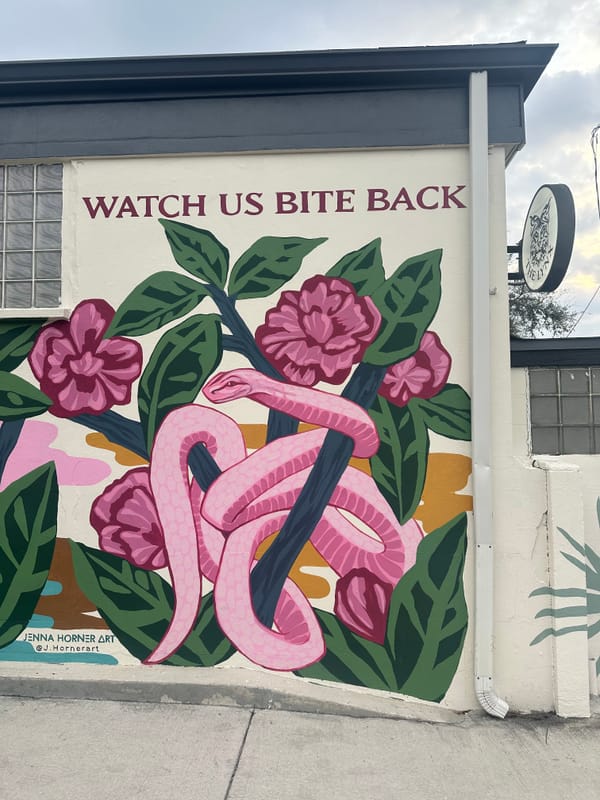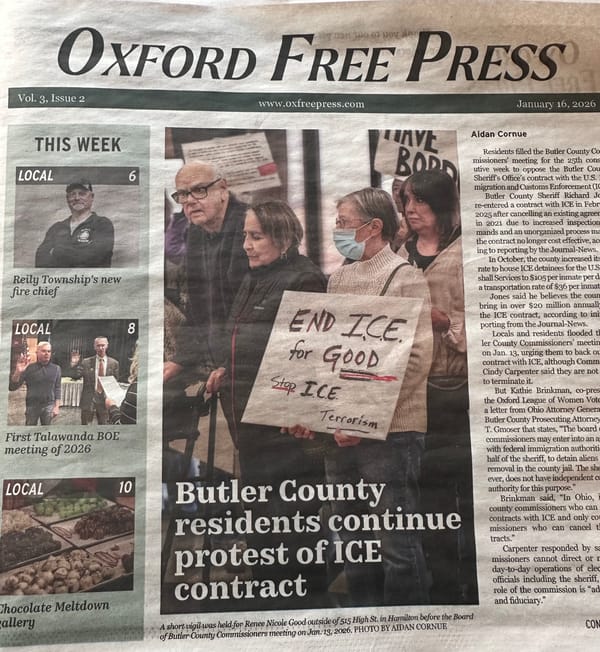#CollectiveActionProblems
How's that for a sexy hashtag?
How's that for a sexy hashtag?
We need a few building blocks for today's discussion.
PUBLIC GOODS: In my comparative politics class, in the lecture on political economy, we discuss a class of goods called "Public goods." Patrick O'Neil, the author of the textbook that I use, defines public goods as "those goods, provided or secured by the state, that are available for society and indivisible, meaning that no one private person or organization can own them." Public goods are things like roads, primary education, parks, and in some countries, forms of health care. The purpose of public goods is to reduce inequality between citizens.
Parks are perhaps the best example. Just yesterday my partner and I were walking our daughter in a park that used to be the graveyard of manufacturing plants. When I previously lived in this city, the area was a dustbin of abandoned buildings, concrete, and trash. Today, the park is a thriving ecosystem with water reclamation, ponds, fountains, watershed management, a series of children's playgrounds, a splash pad, an old train depot that has been repurposed into restaurants, and a series of walking trails that surround a marsh. The ponds attract a wide variety of birds and wildlife (including alligators!!), and the park itself draws people from all social classes and a range of neighborhoods. The park was established by a series of public grants (AKA money from "the state"), and people have relatively equal access to this "good," though people who live closer to the park admittedly have easier access. People who live near the park also benefit from an increase in their property values. In the case of the actual park I am describing, it was placed in a low-income neighborhood that raised the property values of those residents. It was designed to generate equality where it was needed most.
It wouldn't have been in any one person's interest to build the park, but it was in the collective interest to build the park. No individual citizen owns the park. It is maintained by the state using taxpayer funds and equally available to all for use.
COLLECTIVE ACTION PROBLEM - A collective action problem is one in which cooperation provides the best outcome for everyone, but the pursuit of self interest may lead people to not cooperate. The classic example of this used in teaching is the Prisoner's Dilemma which is illustrated in the below video.
I use this YouTube video in the classroom to illustrate the classic "Prisoner's Dilemma"
The basic situation of the Prisoner's dilemma is two individuals get caught in the middle of a crime. The police arrest them and separate them into different interrogation rooms. They do not know what the other person will do. They are each offered the opportunity to tell on the other person in exchange for a lesser sentence. If person A tells on the person B (but person B stays quiet), person A will not have to serve any prison time. The reverse is also true. If they both keep quiet, they will have a limited prison term, since the police's case will be weaker. But if they both tell on each other, they will each serve the maximum sentence.
In this case, cooperation leads to the best outcome overall, but cooperation will be difficult since they will not be able to communicate. They will each be tempted to do what is best for themselves, which will likely result in both people informing and both people serving the maximum sentence.
COOPERATION - Why do people cooperate in some scenarios and not in others? The economist Douglass North, who wrote a Nobel-prize winning book on economic institutions in 1991 (summarized in this article), explained that cooperation is most likely to succeed in the following scenarios:
- when the "play" (economic interaction) is repeated
- when the "players" have complete information about the other players' past performance
- when there are a small number of players
The converse is also true. "Cooperation is difficult to sustain when the game is not repeated (or there is an endgame), when information on the other players is lacking, and when there are large numbers of players."
PUTTING IT ALTOGETHER
Because the primary unit of political membership is relatively large (the population of the United States is 340 million + people), cooperation is difficult to sustain, even when cooperation is in the best interest of all the "players." Even if everyone is willing to cooperate, some institution must facilitate that cooperation. At the country-level, the state often fulfills this role (though other institutions can also do so).
Returning to the park example, it's in everyone's best interest to pay a tiny tax that would fund the park (or to pay for the labor that writes the grants for the park), but there is still a need for cooperation in order for the park to be constructed and maintained. In the real world, a state institution often has to make an initial investment of labor (someone has to write the grants) in order to fund the project. You can read the twenty-year saga that led to our local park here.
Many of the institutions that are being eliminated by the present administration were established to solve collective action problems. It's not in any one person's interest to offer foreign aid to other countries, but it serves the collective interest to do so since it positions the United States as an engine of local economic development, funds civil society institutions that can restrain authoritarian leaders, creates a class of staff that can collaborate when needed on American priorities, and (when done properly) reduces anti-Americanism that can lead to violence against American citizens.
The reduction in funding for libraries is another example. While it's not in any one person's interest to fund a library, it is in the collective interest to do so. No one (except maybe Dolly Parton?) is likely to fund an entire nationwide system of libraries that generates equality by granting all residents of this country relatively equal access to information and entertainment. But all citizens benefit from the existence of these institutions in a range of ways.
When problems which were previously solved by the state become "problems" again, citizens will have to look for individual solutions. They may levy additional taxes to increase local funding for their library. They make have to seek donors. They may have to support fundraisers. These efforts will have varying levels of success. Some libraries will continue to exist and others will not. The places where they are least likely to continue to exist are in low-income and low-resource communities, the very places that most need these institutions. This leads to increased inequality in our society which makes our entire social contract more likely to fail.
I want smooth roads, a nationwide system of libraries, social security, Medicare and Medicaid. I am willing to pay my taxes to support these programs. I don't want hungry strangers knocking at my back door asking for food as was common prior to the creation of social security. I want a coordinated nationwide approach to preventing poverty. And I want the state to solve those problems that we are least likely to solve alone as citizens. Our country needs more equality, not less, and the elimination of our social safety net in order to fund tax cuts for the wealthy will have the opposite effect. It will increase inequality, instability, and violence.

